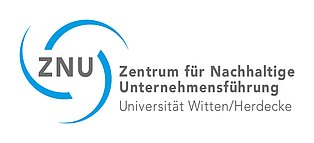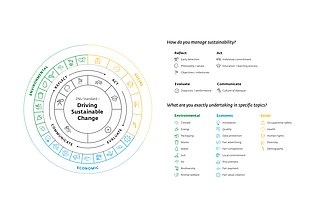The ZNU
To make sustainability more tangible and measurable - this is the goal that Dr. Axel Kölle and Dr. Christian Geßner have been pursuing since the founding of the ZNU - Centre for Sustainable Leadership in 2009. Today, 15 employees work for the application-oriented research institute within the Faculty of Business and Society at the University of Witten/Herdecke.
The network for responsible business practices has over 90 members - including well-known medium-sized food manufacturers, logistics and service companies. Scientific institutions and foundations are also active partners of the Centre for Sustainable Leadership. The corporate network represents around 80,000 jobs and a total turnover volume of around 25 billion euros.
By means of application-oriented research, further training on the topics of sustainability, the annual ZNU Future Conference and through working groups within the ZNU partner network, the participants contribute to a more sustainable way of doing business. The ZNU finances itself from these different fields of activity.
The goal of the ZNU is to make sustainability tangible for professionals and managers of today and tomorrow and to inspire them to embrace sustainable business management, according to the motto: driving sustainable change.
Visit our website. We are looking forward to your contact!
The ZNU Standard – driving sustainable change
The ZNU Standard – driving sustainable change helps companies to become gradually more sustainable and encourages continuous improvement. It is the first field-tested and implemented standard for sustainable management that integrates all three dimensions of environment, economy and social issues and requires and promotes the development of an integrated management system for more sustainable management. This enables companies or service providers to move from a defensive to an offensive approach.
What are the advantages?
- Sustainability measures are combined and structured
- Strategic and long-term orientation of sustainability activities are supported
- Hot spots are dealt with before a crisis occurs
- More sustainable product ranges are promoted
- Sustainability activities become internally and externally more transparent
- Credible communication with stakeholders is facilitated
- Reputational risks towards critical stakeholders are minimised
You want to learn more about the ZNU standard? Visit our website!

